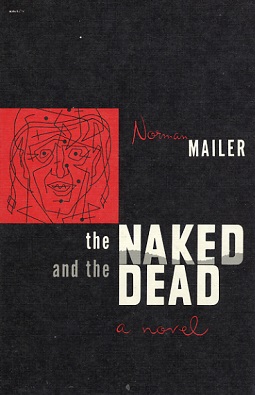 |
| Mailer, the overnight sensation... |
It's guaranteed to happen once a year. Some unknown author emerges from out of the dark shadows of obscurity and publishes a book that goes through the freakin' roof. The book's sales not only blow away even the most major of commercial authors (think James Patterson and Stephen King here), they could arguably outdo the Gross National Product of some small nation-states.
You, as an author, find yourself shaking your head in dismay. Not only have you never heard of this now overnight-famous author, you have been writing for years and years, published several books, and your annual sales don't even come close to this writer's weekly revenue. You look up his or her bio, and you become even more distraught. The author, the bio claims, has worked as a cook, or a video store clerk, or was on welfare until his book was published and every single reader in the world dropped what they were doing and when out to buy it. Or so it seems.
But wait, where have you gone wrong? You've done everything the right way. You started out by working at the local newspaper, then published short stories in the best literary journals, made your way through writing school, nailed a big contract, began establishing a career of steady sales, fans, and contracts. You've nailed all the Amazon lists and some of the traditional lists as well. You make a nice income and have a nice life. You've done everything right. Shouldn't you be the one with the huge blockbuster that blows the doors (or covers) off all other books published that year?
 |
| The novel that sealed the young author's fate. |
If only logic had something...anything at all...to do with the publishing business.
So what are your options? Sit down and read these books? Try and uncover their magic? Maybe you can somehow write a book just like them. Maybe you don't know it yet, but you're the author of the next A Million Little Pieces, 50 Shades of Gray, or Harry Potter. So you set your sights on writing something with a plot and characters that don't necessarily interest you, but you're sure contains the perfect recipe for the next bestseller.
Big mistake.
Back in 1998, an agent in NYC suggested I write a novel with a black man as the detective protagonist because that was the "in thing." I didn't do it. What do I know about writing from a black man's perspective? Why should it interest me? Besides, James Patterson was already doing it, and I would just seem like a copy cat. Fact is, many of these huge bestsellers are often, one-shot, one-hit-wonders. Tremendous pressure is placed on the author to duplicate not only the book, but also the sales. Usually, both fail to meet the grade established by the initial blockbuster success. Norman Mailer, who nailed one of these hits right out of the gate, witnessed the near dismantling of his career with two follow-up books that stunk up the joint, even if they were brilliantly written.
Many of the big one-time hits, however, aren't very well written. They create a hysteria not because of their value as a piece of literature, but simply because they have touched a trendy nerve. Again, referring to Mailer, he once said of these books, "The popularity of bad writing is analogous to the enjoyment of fast food." This is not to say all of these books are bad (after all, in the final analysis, even filet mignon ends up in the same porcelain God as the Big Mac). Some are brilliantly written and will stand the test of time (think Wool by Hugh Howey and Grisham's The Firm). Inevitably, the value of these novels is up to you, the reader.
But as a writer, what should you do in order to become a mega-famous, overnight sensational bestseller? As you mature, and practice your craft, you will come to realize that writing only about the things that interest you is the best and most trusted method of staying the often agonizing course of a full novel, which can take upwards of up to a year to write. In other words, don't force it, or else you'll end up like a rabid dog always chasing its tail (or in this case, tale...forgive me). Attempting to figure out why one book sells better than others is not only an inexact science, it is an absurd science devoid of logic, but chuck full of emotion. We all want to have that one book that sells a thousand or more copies per day for weeks or months. I've had the good luck of nailing a couple of these, but for every bestselling book I write, I have two or three that I can't even get my mother to buy.
The next time a relative unknown author scores a million seller right off the bat, remember, that author could have written a hundred novels before nailing his first huge success. Or, it could be his first and sadly, his only success. This is a business that just can't be controlled or trusted. The only thing you can trust is yourself to write a well as you can, as steadily as possible, and to practice the nail biting discipline day in and day out that's required of the next huge overnight sensational bestseller.
WWW.VINCENTZANDRI.COM

No comments:
Post a Comment